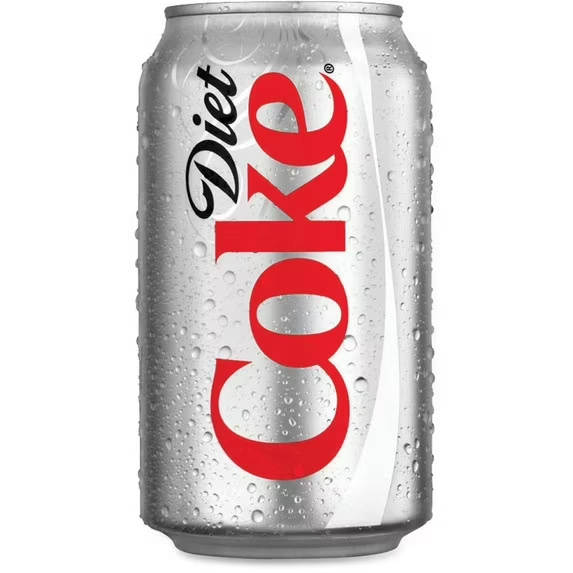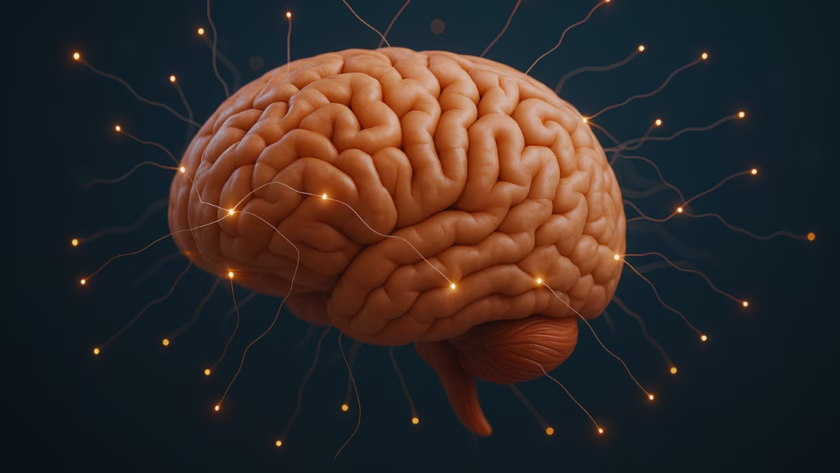Published in the September 3, 2025, issue of Neurology, the research reveals that regular consumption of common sugar substitutes may accelerate memory deterioration and reduce cognitive skills in middle-aged adults.
This comprehensive investigation provides compelling evidence that the sweeteners used in our foods and beverages may have lasting impacts on brain health.
The Hidden Cost of Sugar Substitutes
For decades, artificial sweeteners have been marketed as healthier alternatives to sugar. However, the recent study from the University of São Paulo in Brazil challenges this perception.
Researchers tracked more than 12,000 adults with a median age of 52 for an average of eight years, focusing on seven common sugar substitutes: aspartame, saccharin, acesulfame-K, erythritol, xylitol, sorbitol, and tagatose.
The findings were striking: participants who consumed the largest amount of these sweeteners, an average of 191 mg/day, experienced a 62% faster decline in their overall thinking and memory skills compared to those who consumed the least (around 20 mg/day).

“A 62% faster decline means that people in the highest group of sweetener consumption experienced cognitive aging at a much quicker pace than expected, which could increase their risk of earlier impairment later in life. While our study cannot prove causation, this magnitude of association raises concern that frequent sweetener consumption is not a harmless habit.”
Dr. Suemoto further explained that participants who consumed the largest amounts of artificial sweeteners showed declines in memory and overall thinking skills similar to what would be expected after 1.6 extra years of aging, a significant acceleration in cognitive deterioration.
Why Middle-Aged Adults Are Particularly Vulnerable
One of the most surprising findings was that the association between artificial sweetener consumption and cognitive decline was most significant among participants younger than 60 years old.
This contradicts the common assumption that older adults would be more susceptible to such effects.
Additionally, people with diabetes showed an even faster rate of cognitive decline when consuming high levels of artificial sweeteners.
This is particularly concerning as people with diabetes are often encouraged to use sugar substitutes to manage blood glucose levels.
“Our results suggest that midlife exposure to sweeteners may be particularly harmful, which is important because midlife is a critical period for setting the trajectory of brain health. Cognitive decline and dementia are thought to begin developing decades before symptoms become noticeable.”
Most Affected Groups
- Adults under 60 years old
- People with diabetes
- Regular consumers of diet beverages
- Those who consume multiple types of artificial sweeteners
Cognitive Skills Affected
- Memory retention and recall
- Overall thinking skills
- Information processing speed
- Executive function
Decoding the Science Behind the Findings
While the study establishes a correlation rather than causation, researchers have proposed several mechanisms that might explain how artificial sweeteners could impact brain function.
Previous animal studies and emerging research on the gut-brain connection support these hypotheses.
Neuroinflammation
Some artificial sweeteners, particularly aspartame, may trigger inflammatory responses in the brain. Chronic inflammation is associated with accelerated cognitive decline and neurodegenerative diseases.
Gut-Brain Axis Disruption
Sugar alcohols, such as erythritol and sorbitol, can alter gut microbiota composition, potentially compromising the blood-brain barrier and impacting neural communication pathways.
Metabolic Dysregulation
Artificial sweeteners may interfere with glucose metabolism in the brain, which relies on glucose as its primary energy source for optimal function.
Dr. Kamal Wagle, a geriatric specialist not involved in the study, noted: “While the finding that high consumption is linked to a faster decline is thought-provoking, it’s crucial to immediately highlight what the researchers themselves pointed out: this study shows a link, not a cause.”
The Six Problematic Sweeteners
Of the seven sweeteners examined in the study, six were found to be associated with cognitive decline. Only tagatose showed no significant correlation with reduced cognitive function.
| Sweetener | Common Products | Cognitive Impact | Recommended Alternative |
| Aspartame | Diet sodas, sugar-free gum | Significant decline in memory | Monk fruit extract |
| Saccharin | Sweet’N Low, diet foods | Moderate decline in overall cognition | Small amounts of honey |
| Acesulfame-K | Soft drinks, baked goods | Significant decline in thinking skills | Stevia (pure leaf) |
| Erythritol | Keto products, sugar-free candies | Moderate decline in memory | Allulose |
| Xylitol | Sugar-free gum, toothpaste | Mild decline in overall cognition | Fruit purees |
| Sorbitol | Sugar-free candies, mints | Mild decline in thinking skills | Date paste |

Building on Previous Research
This study adds to a growing body of evidence suggesting potential health risks associated with artificial sweeteners. Previous research has linked these substances to various health concerns:
- A potential negative impact on gut microbiome composition and diversity
- Higher risk of cardiovascular events, including heart attack and stroke
- Increased risk of metabolic syndrome and obesity
- Possible links to migraines and certain types of cancer
- Disruption of glucose metabolism, particularly in people with diabetes
The Calorie Control Council, representing the low- and reduced-calorie food and beverage industry, has emphasized that correlation does not equal causation and pointed to the study’s limitations, including reliance on self-reported dietary data collected only at baseline.
Practical Steps to Reduce Artificial Sweetener Consumption
For those concerned about the potential cognitive effects of artificial sweeteners, registered dietitian nutritionist Monique Richard, MS, RDN, LDN, offers several practical recommendations:

Conduct a Sweetener Audit
Scan food labels for common sweeteners like aspartame, sucralose, saccharin, and acesulfame-K. Track your daily “sweet hits” from drinks, bars, yogurts, and gums for a week to understand your consumption patterns.
Taper Intake Gradually
Reduce sweetener use by 25-50% over a period of two to four weeks. Transition to naturally flavored seltzer, unsweetened tea, or water with citrus, berries, or herbs for flavor without artificial sweeteners.
Retrain Your Taste Buds
Try the “apple test”: rate how sweet an apple tastes on a scale of 1-10. A low rating may indicate frequent consumption of highly sweetened foods. Over time, taste buds can be “retrained” to appreciate natural sweetness.
Natural Flavor Enhancers
Instead of relying on artificial sweeteners, try these natural flavor enhancers:
- Vanilla extract in coffee or oatmeal
- Cinnamon for a sweet-spicy flavor boost
- Cocoa powder (unsweetened) for chocolate notes
- Citrus zest for bright, aromatic sweetness
- Fresh ginger in teas and smoothies
- Mint leaves in water or yogurt
- Cardamom for exotic sweetness
- Fresh or frozen fruit as natural sweeteners

When Natural Sweetness Is Needed:
Try small amounts of honey, maple syrup, fruit purees, pure sugarcane, agave, or monk fruit to sweeten beverages, baked goods, dressings, sauces, or desserts.
Remember that a little goes a long way!
The Need for Further Research
While this eight-year study provides compelling evidence of a link between artificial sweeteners and cognitive decline, researchers emphasize the need for additional investigation to establish causation and understand the underlying mechanisms.
Dr. Kamal Wagle suggests that future research should focus on understanding the “why” behind this link through more controlled studies and investigation of biological mechanisms.
Particularly important areas for exploration include:
- How specific sweeteners might affect brain cells or vascular health
- Why was the link found in people under 60 but not in older adults
- Why was the effect more pronounced in those with diabetes
- The differences between tagatose (which showed no association with decline) and the other six sweeteners
Until more definitive research is available, experts suggest a cautious approach.
As Dr. Suemoto advises: “Our study suggests that high consumption of artificial sweeteners may be linked to faster cognitive decline.
While more research is needed before making firm recommendations, it would be reasonable for people to reduce their intake as much as possible, ideally avoiding these products altogether.”
“Don’t fear, but do add flavor and see how you can filter out the ‘hyper-sweet’ and synthetic additives in the diet for a healthier body and brain.”




